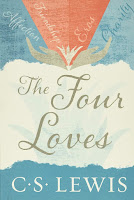Justin
Whitmel Earley encourages four daily habits and four weekly habits that are
designed to draw us closer to God and wean us away from dependence on social
media for affirmation and dopamine hits. The daily habits are 1) Kneel for
prayer three times a day, 2) Eat one meal with others, 3) Spend one hour with your
cellphone off, 4) Read Scripture before turning on your phone.
The weekly
habits are 1) Spend one hour of conversation with a friend, 2) Curate your
media (movies/videos) to four hours, 3) Fast from something for 24 hours, and
4) Keep the Sabbath.
The chapter
on Daily Habit #3 (Turn of your phone for one hour a day) was the most
important chapter in the book for me, not because I don’t already limit my cell
phone use, but because it gave good theological reasons for continuing to do
so. Presence is the essence of life itself. It’s at the heart of who we are
because presence is at the core of our relationship with God. From creation to
salvation, the story of the Bible is fundamentally a story of presence. Eden
was Eden because the unmediated presence of God was there. God was with Adam
and Eve till sin broke the bliss of that presence. After they sinned, Adam and
Eve wanted to cover their nakedness and hide. This is the hallmark of life as
we know it now. We hide from each other
and we hide from God. We long for the face of God, but we can’t bear his gaze
either. Sin has turned a people meant for presence into a people of absence.
Fortunately, the story of the Bible doesn’t end there. God in His mercy still
pursues His rebellious children.
Although I
appreciated this book very much, I found parts of it to be annoying (Earley’s
bragging about how good he is at speaking Chinese was one example). Also, the
subtitle of this book could have been “Spiritual Disciplines for Social Justice
Warriors” because of how often he tacked on social justice issues to each
discipline. Don’t get me wrong. I LOVED his emphasis on spiritual disciplines
that are rooted in the two commandments to “Love God and love your neighbor.” What
better motivation can you have for getting off your phone than to be fully present
to those around you and to pursue the goals that God has put into your heart to
fulfill His purposes?
But some of the ways he prescribes to do that are just plain odd. In the chapter on curating your media time, he strongly suggests that you watch things that show the injustice in the world so that you can feel miserable about it. But feeling bad about injustice is not biblical justice. (See Voddie Baucham's explanation of the difference in this video.)
Anyway, this book stretched me in a lot of ways and I'm glad I read it. Any thoughts?
























